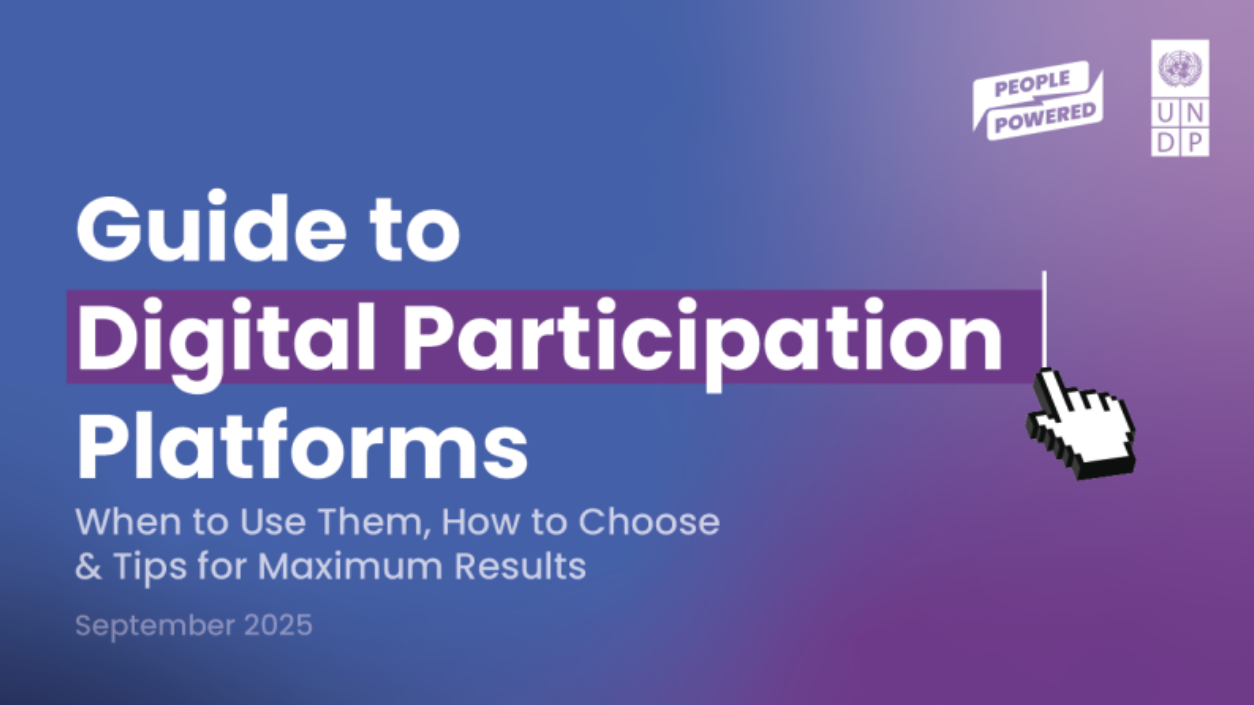Consider open source platforms
/Consider open source platforms
Many software experts prefer open source platforms, for a variety of reasons. Open source code also means that you, your team, or your partners can adapt it to your own needs. In the Brasil Participativo example above, the Brazilian government team was able to invest their resources in improving the mobile experience for its citizens because the core underlying platform was already built.
Open source code can also be openly examined, so you or your team can determine how the platform works. For example, you can determine how the platform sorts participant proposals to ensure a fair process, or where the tool calls the AI model and which data it sends to it.
In addition, with open source software, you can keep running your project even if the original developer stops supporting it. With closed code, or proprietary platforms, you are dependent on the unpredictable factors that affect all businesses. For example, it's not uncommon for participation platforms to be acquired by larger government technology vendors. This can affect the platforms' licensing, pricing, data export features, and whether you can continue using it at all.
Open source ecosystem
In addition to the public sector and civil society contributors, there's an ecosystem of small tech companies offering additional services for open source participation platforms like Decidim and CONSUL. Companies like Voca, Open Source Politics, and DigiDem Lab provide additional services like platform configuration and cloud hosting. This makes it easier for less-technical teams to use open source tools. They even develop additional software features atop the open source platforms. For example, Voca has built a WhatsApp integration for Decidim so participants who already use the messaging app can engage with your participation process from it. This way participants don't need an email address to take part, a consistent data connection (another common digital barrier). These third-party development companies are also implementing deliberative AI features ahead of the underlying platforms, which are often focused on maintaining core infrastructure.
Preventing lock-in
If you choose a platform that isn't open source, you should make sure you can at least export your data from the platform. Several proprietary participation platforms offer data downloads to help alleviate fears of lock-in (where you can't export or re-use all the work you've done, and contributions people have made, anywhere else). The platforms offering this functionality are tagged as having the “export data" feature in the platform comparison matrix.
Don't just take the marketing page's word for it, though. Before you run an entire program, try exporting your data from the platform to see how long it takes to get your data out, and how useful the data they send you is to re-use elsewhere. Even when you can export your data, setting up your participation process again on another platform will likely be time consuming, which is why we recommend testing platforms before deciding on one. Open source platforms are more likely to facilitate your access to the data you generated on them.
Open ethos
There are also values-based reasons to choose an open source platform. Advocates like those with the Public Money’s Public Code campaign argue that software funded by government budgets should be broadly available. Not all institutions support procurement of open source platforms, however. The low price tag of open source code, which is often zero, can paradoxically prove to be problematic, for instance due to outdated procurement rules that flag no-cost transactions as illegal "gifts." Solutions to this include procurement reform in the long term, and hiring vendors to implement the open source software in the short term.
At least one platform developer has found a compromise between open source and proprietary profitability. Go Vocal offers two versions of its platform. The free version is open source and contains the platform's core functionality. This means users can host basic participation processes without even speaking with the company behind it. You'll need to know your way around a web server, though. For its more advanced premium features, Go Vocal sells a commercial version. On this version clients can view the underlying code if they want to see how things work, but can't adapt it for their own purposes.
What about "open source AI"?
For years, various actors have advocated for various interpretations of what "open source AI" should mean. The definition is likely to keep evolving with the underlying technologies (and the legal system's response to it), but at least for now, Open Source Initiative, the non-profit organization that stewards the definition of open source software, has published an initial definition of open source AI. They developed it through years of research and co-design with stakeholders. In short, open source AI provides the freedom to:
"Use the system for any purpose and without having to ask for permission."
"Study how the system works and inspect its components."
"Modify the system for any purpose, including to change its output."
"Share the system for others to use with or without modifications, for any purpose."
Next: Take contracting issues into account
Previous: Ensure accessibility





